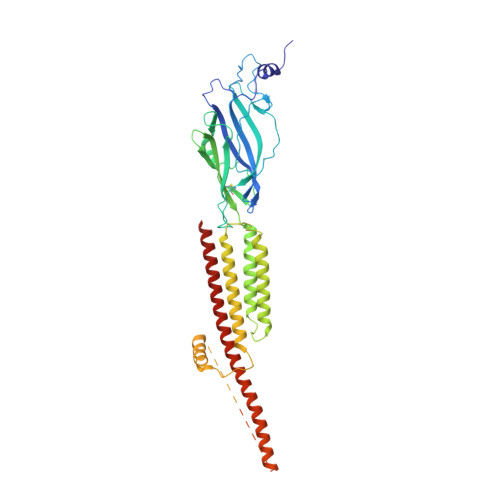Cryo-EM reveals two distinct serotonin-bound conformations of full-length 5-HT3Areceptor.
Basak, S., Gicheru, Y., Rao, S., Sansom, M.S.P., Chakrapani, S.(2018) Nature 563: 270-274
- PubMed: 30401837
- DOI: https://doi.org/10.1038/s41586-018-0660-7
- Primary Citation of Related Structures:
6DG7, 6DG8 - PubMed Abstract:
The 5-HT 3A serotonin receptor 1 , a cationic pentameric ligand-gated ion channel (pLGIC), is the clinical target for management of nausea and vomiting associated with radiation and chemotherapies 2 . Upon binding, serotonin induces a global conformational change that encompasses the ligand-binding extracellular domain (ECD), the transmembrane domain (TMD) and the intracellular domain (ICD), the molecular details of which are unclear. Here we present two serotonin-bound structures of the full-length 5-HT 3A receptor in distinct conformations at 3.32 Å and 3.89 Å resolution that reveal the mechanism underlying channel activation. In comparison to the apo 5-HT 3A receptor, serotonin-bound states underwent a large twisting motion in the ECD and TMD, leading to the opening of a 165 Å permeation pathway. Notably, this motion results in the creation of lateral portals for ion permeation at the interface of the TMD and ICD. Combined with molecular dynamics simulations, these structures provide novel insights into conformational coupling across domains and functional modulation.
- Department of Physiology and Biophysics, Case Western Reserve University, Cleveland, OH, USA.
Organizational Affiliation:



















